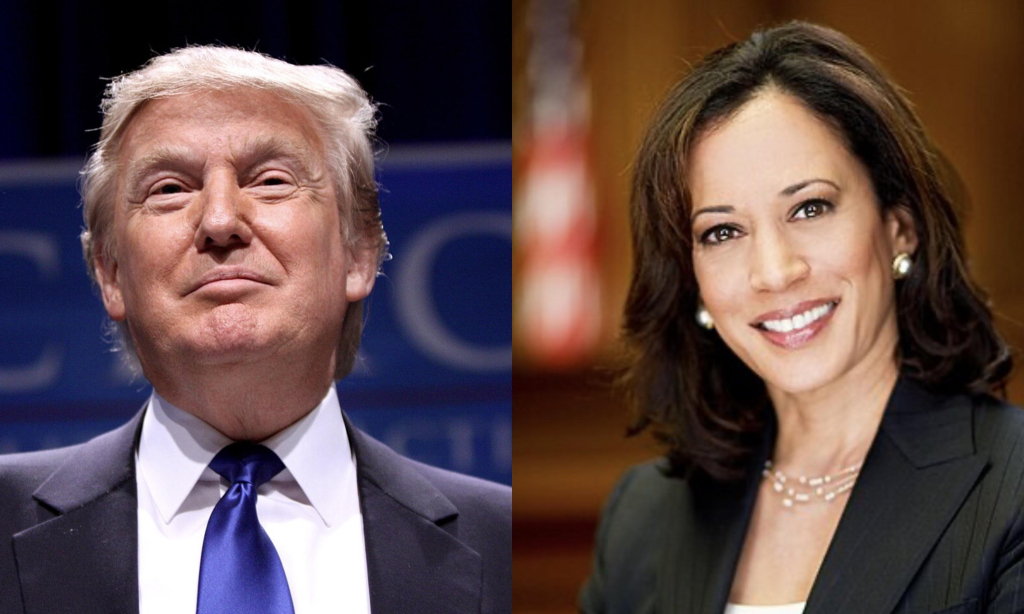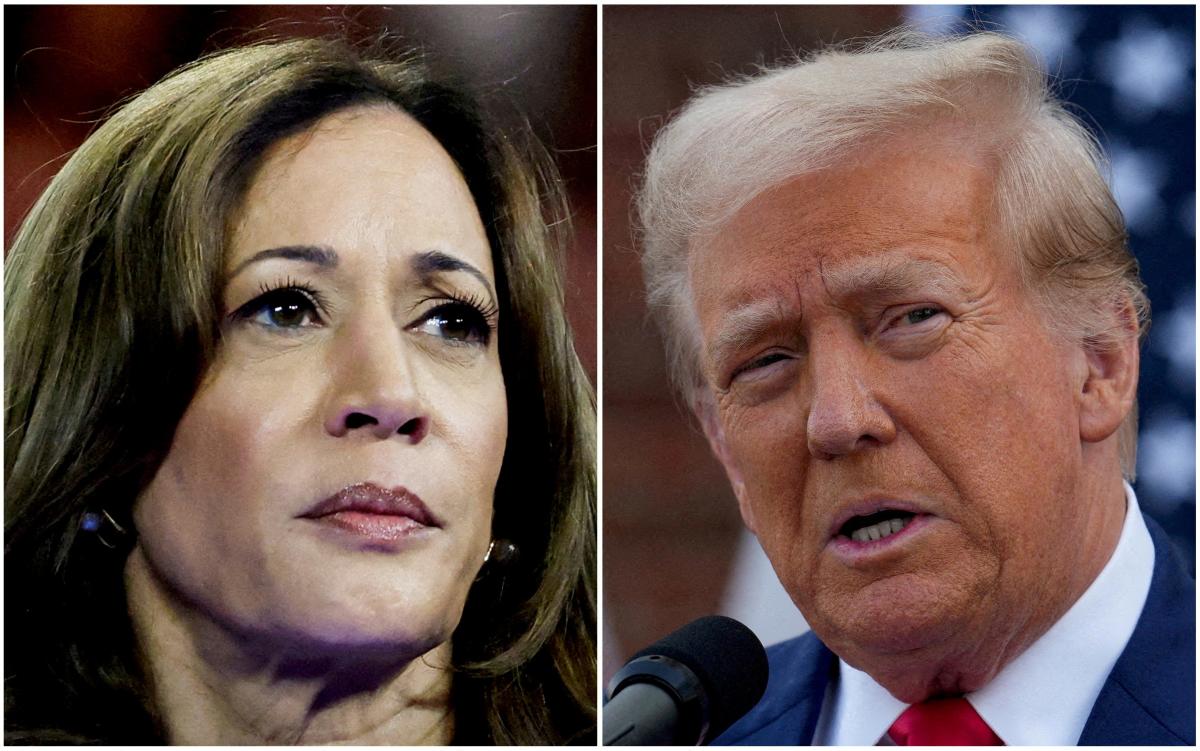On Oct. 10, politics editor Kaitlyn Schallhorn and Orange County Registrar of Voters Bob Page sat down to answer questions live on the social platform Reddit.
Redditors were told that they could ask anything about Orange County’s 2024 election, and they did. For two hours, Schallhorn and Page were busy answering questions about when ballots are destroyed, voter ID rules and protection from harassment at the polls among others.
Also see: All our Orange County election information to help you vote, including FAQs, ballot measure breakdowns and race analysis
Here are some of the highlights. Some questions have been edited for grammar, spelling, clarity and brevity.
What’s the process like once I have submitted my mail-in ballot? How long are ballots held on to before destruction?
Page: There are multiple steps the Registrar of Voters completes after you cast your vote-by-mail ballot, including collecting your ballot, recording that you voted a ballot so you cannot vote a second time, and verifying your signature. If your signature is accepted, your ballot will be extracted from your return envelope so it can be scanned.
If your signature is challenged, you will be notified by mail to provide you a chance to cure your signature issue. If you have provided us with your phone number or email address or signed up for OC Ballot Express, we will also notify you by those methods.
We have a Life of a Vote-By-Mail Ballot infographic posted on our website at ocvote.gov/voting/life-of-a-vote-by-mail-ballot.
After we certify the results of the election, we are required to preserve ballots in sealed containers that we cannot open without a court order. If there is a federal office on the ballot, we must preserve the ballots for 22 months. If there is not a federal office on the ballot, we must preserve the ballots for six months.
If at the end of the preservation period, there is not a criminal investigation or an ongoing election challenge lawsuit, we must destroy the ballots.
Note: We are still preserving ballots from the 2020 Presidential General Election and the 2021 Special Gubernatorial Recall Election because of ongoing litigation
What’s the justification behind having Board of Education candidates voted in during primaries instead of general elections? We are one of the few counties to do this and its a little strange since most voters aren’t paying attention during primaries.
Page: The Orange County Board of Education decides whether its elections are held during a statewide primary election or a statewide general election, as allowed in State law.
Schallhorn: That’s an interesting question that actually played out in the state legislature this year.
Two OC state senators — Dave Min and Josh Newman — proposed legislation this year that would have increased the size of the Board of Education and moved its elections to November. While the bill passed the legislature, it was vetoed by Gov. Newsom, who said local processes already in place to change the structure of the Board of Education should be followed instead.
The legislators had said that the proposed changes would make the board more representative of the community and increase participation by moving it to November, rather than the primary elections held in the spring.
OCBE members opposed to the bill, on the other hand, said the November ballot is already crowded and voters could end up missing OCBE contests altogether. They also said implementing the changes would be costly.
Do you anticipate any legal challenges, like the ones that plagued the 2020 election, happening in Orange County? I don’t think California had that problem then, but in the interest of being prepared, what are you doing in case it does?
Page: There actually was a challenge filed in federal court of the California Secretary of State’s certification of the 2020 Presidential General Election. In its filing, Election Integrity Project California also sought to declare California’s vote-by-mail election system unconstitutional.
The litigation names the State and a number of counties, including Orange County, as respondents. While the State and counties prevailed in the district court and Ninth Circuit, there is still a chance that EIPCa may seek review by the Supreme Court of the United States.
In March, three candidates for State and local offices filed a complaint against the State and County in Orange County Superior Court that seeks a declaration that the Voter’s Choice Act is legally invalid, which would require the County to revert to conducting elections by assigning each voter to a specific polling place to vote, only on Election Day. They allege that electronic voter rosters on the poll books, which require connection to the internet to work, are a part of the voting system, which state law prohibits from being connected to the internet.
The State and County have filed motions to dismiss the case. Hearings are set for November and December.
If similar new litigation is filed regarding the election we are conducting now, the County will again coordinate with the State to respond.
The OC Registrar of Voters has a page that states, “In the United States the information you provide is based on the “honor system”, which means proof of your citizenship is not verified. However, you sign the form under penalty of perjury, which means you could face criminal prosecution if you provided false information on your voter registration documents.”
Can you expand a bit more on what this means, and why proof of citizenship is not verified? For voters who may feel the honor system is not good enough, what is a good strategy to ensure these voters feel the election is conducted properly?
Page: The Registrar of Voters complies with the law requiring it to only register voters who have certified under penalty of perjury that they are a U.S. citizen. California Elections Code section 2112 states that a person certifying his or her U.S. citizenship on a voter registration affidavit shall be deemed evidence of citizenship. We are not authorized under State law to separately verify a voter’s citizenship.
In addition, the Registrar of Voters complies with the Help America Vote Act (HAVA), which requires individuals registering to vote for the first time in the state/jurisdiction to provide either a valid California driver’s license or state ID card number. Applicants who do not have either can provide the last four digits of their Social Security number.
When voters register, they provide the number of their California Driver’s License or Identification Card. This number and the voter’s name and date of birth must match the information for the voter on file with the Department of Motor Vehicles.
State law further prohibits the Department of Motor Vehicles from sending undocumented driver license applicants’ information to the Secretary of State for voter registration purposes.
We take maintenance of our voter registration rolls and potential voter fraud seriously. We update registration records daily, averaging about 60,000 updates each month based on information provided by voters and official government sources.
Willfully lying about one’s eligibility to vote on a registration affidavit is a felony in California, carrying a penalty of up to three years in county jail. If a third party submits evidence of an illegal registration, we immediately report this to the district attorney and/or secretary of state for investigation. No cases of non-citizens voting has been prosecuted in Orange County.
There’s a rule stating that you cannot campaign within a certain number of feet next to a polling place. Does this rule apply to individuals who come to your home and offer to deliver your ballot? Can they make political statements before or after offering to deliver your ballot? After all, with universal VBM, isn’t your home kind of the polling place in that moment?
Page: In terms of electioneering, state election code does not apply to the home.
Election code does stipulate that someone cannot intimidate you to vote for a specific candidate or not to vote at all. If that happens, contact the district attorney at 657-707-4048 or [email protected]. For more information about reporting suspicious behavior or activity, please see: www.ocvote.gov/voting/reporting-suspicious-activity-and-electioneering.
What efforts if any does the Registrar of Voters make to PREVENT overcounts? What efforts does the ROV himself and staff make to discourage undercounts and ask voters to vote on as many items on the ballot every year? Does the registrar plan to continue releasing such tabulations for both overcounts and undercounts once polls close and in the weeks following the election?
Page: The Registrar of Voters provides instructions on the ballot regarding how many votes are allowed for each contest:
- Vote for 1
- Vote for no more than 2
- Vote for no more than 3
If a voter marks more votes than allowed for a specific contest, none of the votes in that contest on that ballot will be included in the contest results.
It is a voter’s right to vote in all or some of the contests on the ballot. We do not encourage voters to vote in all contests, as we should not influence a voter’s choices in any way.
In the plain text version of the certified statement of votes that we post on our website at ocvote.gov/results, we report the number of overvotes and undervotes in each contest. We plan to continue that practice.
What are the plans if a MAGA-affiliated group attempts to disrupt, harass, or block a polling location or ballot drop box as has been suggested on various MAGA social media channels?
Page: We would dispatch law enforcement to resolve the situation so voters feel safe to vote, as we would if any group attempted to disrupt, harass, or block a polling location or ballot drop box.
State law does not allow me to station security guards or law enforcement at vote centers and ballot drop boxes as it is considered a form of voter intimidation. So, we work closely with local, state and federal law enforcement to prepare for the election.
This includes monitoring online chatter for threats, protecting our systems from cyberattacks, making sure law enforcement knows where all of our voting location are, having people in the field ready to respond and training our employees on de-escalation techniques. This year, the Sheriff also now assigns a sergeant to work in our command center to help us more quickly address any report of a disturbance at a voting location.













